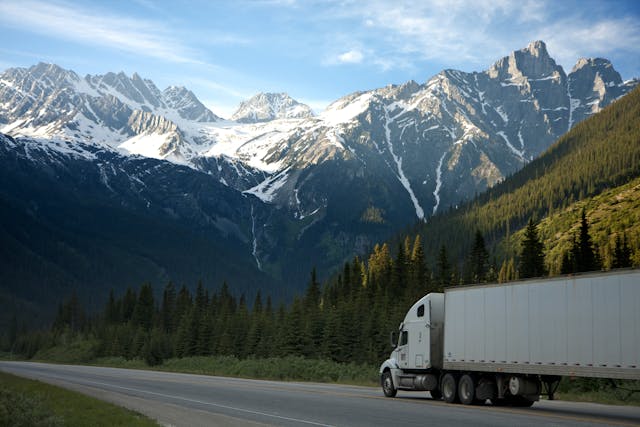In the competitive world of trucking, having the right equipment is essential for ensuring efficiency, safety, and profitability. Whether you’re launching a new trucking venture or expanding an existing fleet, investing in the appropriate equipment can make all the difference in your business’s success.
In this article, we’ll explore the essential equipment needed for a thriving trucking business and discuss some key considerations to keep in mind when acquiring and maintaining these assets.
- Commercial Trucks
At the heart of any trucking business are the commercial trucks themselves. These vehicles serve as the lifeline of your operations, transporting goods across long distances efficiently and reliably. For new businesses, consider trucking business equipment loans when selecting commercial trucks for your fleet. In your trucks, look for factors such as:
- Size and capacity: Choose trucks that can accommodate the types of cargo that you plan to transport, whether it’s dry goods, refrigerated items, or oversized freight.
- Fuel efficiency: Opt for trucks with fuel-efficient engines to minimize operating costs and reduce the environmental impact.
- Maintenance history: Inspect the maintenance records of used trucks to ensure they have been well maintained and are in good working condition.
- Trailers
Trailers are another critical component of a trucking business, providing the necessary space to transport cargo securely. Different types of trailers are available to accommodate various types of freight, including:
- Dry van trailers: Ideal for transporting general freight and goods that don’t require temperature control.
- Refrigerated trailers (reefers): Equipped with cooling systems, reefers are designed to transport perishable goods such as fresh produce, dairy products, and pharmaceuticals.
- Flatbed trailers: These are suited for hauling oversized or irregularly shaped cargo, such as machinery, construction materials, and vehicles.
- Specialized trailers: Depending on your niche or specialty, you may require specialized trailers, such as tankers for transporting liquids or double-drop trailers for hauling heavy equipment.
- GPS Tracking Systems
GPS tracking systems are invaluable tools for trucking businesses, providing real-time visibility on vehicle location, route efficiency, and driver performance. These systems offer several benefits, including:
- Improved fleet management: Monitor vehicle movement, optimize routing, and identify opportunities to streamline operations.
- Enhanced security: Track the whereabouts of your vehicles and cargo to prevent theft, unauthorized use, or tampering.
- Compliance with regulations: GPS tracking systems can help ensure compliance with hours-of-service regulations by accurately recording driver hours and rest periods.
- Electronic Logging Devices (ELDs)
Electronic logging devices (ELDs) are mandated by the Federal Motor Carrier Safety Administration (FMCSA) for tracking drivers’ hours of service (HOS). ELDs offer several advantages, including:
- Automated HOS tracking: Replace manual logbooks with electronic records, reducing the risk of errors and inaccuracies.
- Compliance with regulations: Ensure compliance with FMCSA regulations governing driver hours, rest periods, and driving limits.
- Improved safety: Monitor driver fatigue and prevent violations of HOS regulations, reducing the risk of accidents and improving overall safety.
- Load Securing Equipment
Properly securing cargo is essential for ensuring safety and preventing damage during transit. Invest in load securing equipment such as:
- Straps and tie-downs: Use straps and tie-downs to secure cargo to trailers and prevent shifting or movement during transit.
- Chains and binders: For heavier or oversized cargo, use chains and binders to secure loads and prevent them from shifting or falling off the trailer.
- Dunnage and blocking: Use dunnage materials such as wood blocks or air bags to fill gaps and stabilize cargo within the trailer.
The success of a trucking business hinges on having the right equipment to support efficient, safe, and reliable operations. From commercial trucks and trailers to GPS tracking systems and load securing equipment, each component plays a vital role in the success of your business.
By investing in high-quality equipment, adhering to regulatory requirements, and prioritizing safety and efficiency, trucking businesses can position themselves for long-term success and profitability in the competitive transportation industry.

